By Maxmilian Wechsler
Thailand’s law-makers have covered far more than most drivers, motorcyclists and even cyclists can begin to imagine. Here they are in full
Thailand’s law-makers have covered far more than most drivers, motorcyclists and even cyclists can begin to imagine. Here they are in full
| OVER the years the Kingdom of Thailand has amassed thousands of legal directives for residents and visitors to follow. The most fundamental are those outlined in the Constitution, and these are joined by an endless procession of specific measures categorized as Acts, Administrative Charters, Announcements by Council for National Reform, Announcements by the Revolutionary Council, Codes, Emergency decrees, Ministerial Regulations, Royal decrees, Rules and Regulations, Treaties and so on. There are also a vast number of amendments to laws which may have been on the books for 100 years or more. For example, the Act on Navigation in Thai Waters, B.E. 2456 (1913), has undergone 15 amendments, the last being made in 1997. Several hundred laws have been translated to English and they appear on www.ThaiLaws.com. |
However, one of the most important laws for foreigners in the country, the Land Traffic Act B.E. 2522 (1979), hasn’t been translated in full from the original Thai, and some parts, and especially amendments, haven’t been translated at all. This means that foreigners who want specific information are left with little recourse but to employ a lawyer – unless they are fluent in written Thai. I became interested in the Land Traffic Act while doing research for articles concerning automobiles and motorcycles. Since many foreigners, residents and tourists, own or rent motor vehicles in Thailand, I wanted to compile clear translations of parts of the law that might be most relevant to foreigners, and have added the penalties for violations as well. In many cases the penalties seem low in comparison to other countries, and this may be one reason so many people show a lack of respect for traffic laws.
Some basics
IN the first part of the Act it says:
• Any vehicle must not scrape the road, emit gas, dust, smoke, etc. exceeding the regulations. (Fine not exceeding 500 baht).
• Cars and motorcycles must have a horn which is audible from a distance of 60 meters. (Fine not exceeding 200 baht).
• Cars and motorcycles cannot use flashlight, siren, whistle, faltering sound, etc., except emergency vehicles such as military, police vehicles, or when permitted by regulations. (Fine not exceeding 500 baht).
• Cars and motorcycles can use the horn only when avoiding danger or accidents. (Fine not exceeding 500 baht).
• If a truck carries explosives, it must have sign with the name of the explosive substance and also be equipped with fire-extinguishers. (Imprisonment not exceeding one month or fine not exceeding 2,000 baht, or both).
• A driver is responsible for not allowing his passengers, animals, or cargo to fall, leak, give out smell, reflect light, etc, which may cause harm or danger to the public. (Fine not exceeding 500 baht).
• As for traffic lights, the Act explains that on yellow, the driver shall prepare to stop the vehicle behind the stop line. If the driver has passed the stop line when the traffic light turns yellow, he may go through. At a red light, the driver shall stop vehicle behind the stop line. (Fine not exceeding 1,000 baht).
• One long whistle made by police means stop, and two short whistles means proceed. (Fine not exceeding 1,000 baht).
• Unauthorized persons cannot install or display traffic signs or signals. (Imprisonment not exceeding one month or fine not exceeding 2,000 baht, or both).
• The driver shall be careful not to hit pedestrians and should use the horn if it is necessary. The driver shall be especially careful with children, the elderly and disabled persons.
• If the road is divided into two or more traffic lanes in the same direction, the driver shall keep to the outmost left-hand side lane. If this one is a bus lane, the driver shall keep close to the bus lane except in the following situations:
1. There is an obstruction on the road.
2. The road is declared as one-way.
3. It is necessary to enter the correct lane upon approaching a junction.
4. When overtaking another vehicle.
5. When driving faster than vehicles in the left lane.
(Fine of 200 to 500 baht).
• The driver of a truck, passenger vehicle, motorcycle or vehicle of low speed shall keep to the curbside of the roadway as near as possible. (Fine of 400 to 1,000 baht).
• No driver shall operate a vehicle:
1. While incompetent to drive.
2. While intoxicated by liquor or other alcoholic drinks.
3. In a manner that obstructs traffic.
4. With carelessness or recklessness which may cause danger to persons or property.
5. On a footpath without sufficient cause, except a baby carriage or a wheelchair for sick or disabled persons.
(Fine of 400 to 1,000 baht).
• No driver shall overtake another vehicle from the left side unless:
1. The vehicle to be overtaken is making a right turn or has given a signal that it is going to make a right turn.
2. The roadway is arranged with two or more traffic lines in the same direction. (Fine of 400 to 1,000 baht)
• The driver shall not overtake another vehicle when:
1. Driving up a slope, bridge or curve, except where there is a traffic sign permitting to overtake.
2. Within a distance of 30 meters from a pedestrian crossing, junction, circle or railroad crossing.
3. Fog, rain or dust prevents visibility of more than 60 meters.
4. Entering congested area of a safety zone. (Fine of 400 to 1,000 baht).
• No driver shall enter a bus lane in order to overtake another vehicle except when there is an obstacle ahead or guided by a police officer. (Fine of 400 to 1,000 baht).
• A driver shall not stop his vehicle:
1. In a traffic lane except when stopping close to the curbside, provided there’s no bus lane.
2. On a footpath.
3. On a bridge or in a tunnel.
4. At a junction.
5. Where there is a ‘No Parking’ traffic sign.
6. The entrance or exit of a building or roadway, or in a safety zone. (Fine not exceeding 500 baht).
•Unless otherwise granted by this Act or other regulation, no driver shall park his vehicle:
1. On a footpath, bridge or in tunnel.
2. At a junction or within a distance of 10 meters from a junction.
3. At a crossing or within a distance of 3 meters from a crossing.
4. In an area where there is a ‘No Parking’ traffic sign.
5. Within a distance of 3 meters from a hydrant.
6. Within a distance of 10 meters from a traffic sign installation.
7. Within a distance of 15 meters from a railway crossing.
8. In the manner of double parking.
9. At the entrance or exit of a building or roadway or within a distance of 5 meters from the entrance of a roadway.
10. In between a safety zone and the roadway curb, or within a distance of 10 meters from either end of a safety zone.
11. In a congested area.
12. Within a distance of 15 meters before and 3 meters beyond a bus stop, and within a distance of 3 meters from a pillar-box, or in a manner that obstructs traffic. (Fine not exceeding 500 baht).
• When parking and leaving a vehicle, the driver must stop the engine and apply the brake. While parking on a slope, the driver must turn the front wheels. (Fine not exceeding 500 baht).
• The police may order the driver of an illegally parked vehicle to move on. If the driver is not on the scene or refuses to comply, the police may remove such vehicle, or lock the tires. If any damage occurs to the vehicle during this process, the police will not be held responsible unless it is intentional or gross negligence. (Imprisonment not exceeding 1 month, or fine not exceeding 2,000 baht, or both).
• If it is dark and a parked vehicle cannot be seen clearly from a distance of 150 meters, the driver must turn on parking lights. (Fine from 200 to 500 baht).
• At a railway crossing, the driver must stop the vehicle at a distance of at least 5 meters from the railway tracks if:
1. A sign or signal is displayed to indicate an approaching train.
2. The crossing bar is closed or a traffic officer displays a sign of an approaching train.
3. The driver hears the sound of an approaching train.
(Fine not exceeding 500 baht).
• At a railway crossing, where there is no signal or crossing bar to warn an approaching train, the driver must stop the vehicle at no less than 5 meters from the railway tracks, to see if it is safe to pass. (Fine not exceeding 500 baht).
• While a driver who is driving an emergency vehicle to perform a duty, the driver has the right to do the following:
1. Use flashlight, siren signal or other signal which is permitted by the Director General of the Royal Thai Police (RTP).
2. Stop a car or park in no-parking area.
3. Drive exceeding the prescribed speed limit.
4. Drive past any stop traffic signals or signs, but must reduce speed as deemed proper.
5. Disregard the Act or other regulations on use of roadways or making U-turns.
• When a pedestrian, driver, rider, or animal keeper sees or hears an emergency vehicle, they must let the emergency vehicle pass first, by doing as follows:
1. Pedestrian must stop and be on edge of the roadway or on the shoulder of the road.
2. Driver must stop and park at the edge of the road way on his left side. If there is a car in the left lane, the driver must stop and park in the lane next to the bus lane. The driver must not stop or park at a junction.
3. Rider or animal keeper must control the animal to stop at the edge of the roadway but must not stop at the junction. In cases (2) and (3) the rider and animal keeper must act as quickly as possible, but with caution.
(Fine not exceeding 500 baht).
• Any person who drives a vehicle and causes damage to other persons or property, be it his fault or not, shall stop the vehicle and give appropriate assistance and immediately report to a competent officer on duty near the scene, and leave his full name, address and the vehicle registration number with the injured person.
• In the event the driver leaves the scene of the accident without reporting to a competent officer, it shall be presumed that he is the offender and the competent officer shall have the power to seize the vehicle until the case receives a final judgment or the driver is found.
If the owner of the vehicle does not present himself to the competent officer within 6 months from the day of the accident, it shall be regarded that the vehicle is connected with a criminal activity and it shall become the property of the state. (The sentence can be severe, whether imprisonment, fine, or both).
Some basics
IN the first part of the Act it says:
• Any vehicle must not scrape the road, emit gas, dust, smoke, etc. exceeding the regulations. (Fine not exceeding 500 baht).
• Cars and motorcycles must have a horn which is audible from a distance of 60 meters. (Fine not exceeding 200 baht).
• Cars and motorcycles cannot use flashlight, siren, whistle, faltering sound, etc., except emergency vehicles such as military, police vehicles, or when permitted by regulations. (Fine not exceeding 500 baht).
• Cars and motorcycles can use the horn only when avoiding danger or accidents. (Fine not exceeding 500 baht).
• If a truck carries explosives, it must have sign with the name of the explosive substance and also be equipped with fire-extinguishers. (Imprisonment not exceeding one month or fine not exceeding 2,000 baht, or both).
• A driver is responsible for not allowing his passengers, animals, or cargo to fall, leak, give out smell, reflect light, etc, which may cause harm or danger to the public. (Fine not exceeding 500 baht).
• As for traffic lights, the Act explains that on yellow, the driver shall prepare to stop the vehicle behind the stop line. If the driver has passed the stop line when the traffic light turns yellow, he may go through. At a red light, the driver shall stop vehicle behind the stop line. (Fine not exceeding 1,000 baht).
• One long whistle made by police means stop, and two short whistles means proceed. (Fine not exceeding 1,000 baht).
• Unauthorized persons cannot install or display traffic signs or signals. (Imprisonment not exceeding one month or fine not exceeding 2,000 baht, or both).
• The driver shall be careful not to hit pedestrians and should use the horn if it is necessary. The driver shall be especially careful with children, the elderly and disabled persons.
• If the road is divided into two or more traffic lanes in the same direction, the driver shall keep to the outmost left-hand side lane. If this one is a bus lane, the driver shall keep close to the bus lane except in the following situations:
1. There is an obstruction on the road.
2. The road is declared as one-way.
3. It is necessary to enter the correct lane upon approaching a junction.
4. When overtaking another vehicle.
5. When driving faster than vehicles in the left lane.
(Fine of 200 to 500 baht).
• The driver of a truck, passenger vehicle, motorcycle or vehicle of low speed shall keep to the curbside of the roadway as near as possible. (Fine of 400 to 1,000 baht).
• No driver shall operate a vehicle:
1. While incompetent to drive.
2. While intoxicated by liquor or other alcoholic drinks.
3. In a manner that obstructs traffic.
4. With carelessness or recklessness which may cause danger to persons or property.
5. On a footpath without sufficient cause, except a baby carriage or a wheelchair for sick or disabled persons.
(Fine of 400 to 1,000 baht).
• No driver shall overtake another vehicle from the left side unless:
1. The vehicle to be overtaken is making a right turn or has given a signal that it is going to make a right turn.
2. The roadway is arranged with two or more traffic lines in the same direction. (Fine of 400 to 1,000 baht)
• The driver shall not overtake another vehicle when:
1. Driving up a slope, bridge or curve, except where there is a traffic sign permitting to overtake.
2. Within a distance of 30 meters from a pedestrian crossing, junction, circle or railroad crossing.
3. Fog, rain or dust prevents visibility of more than 60 meters.
4. Entering congested area of a safety zone. (Fine of 400 to 1,000 baht).
• No driver shall enter a bus lane in order to overtake another vehicle except when there is an obstacle ahead or guided by a police officer. (Fine of 400 to 1,000 baht).
• A driver shall not stop his vehicle:
1. In a traffic lane except when stopping close to the curbside, provided there’s no bus lane.
2. On a footpath.
3. On a bridge or in a tunnel.
4. At a junction.
5. Where there is a ‘No Parking’ traffic sign.
6. The entrance or exit of a building or roadway, or in a safety zone. (Fine not exceeding 500 baht).
•Unless otherwise granted by this Act or other regulation, no driver shall park his vehicle:
1. On a footpath, bridge or in tunnel.
2. At a junction or within a distance of 10 meters from a junction.
3. At a crossing or within a distance of 3 meters from a crossing.
4. In an area where there is a ‘No Parking’ traffic sign.
5. Within a distance of 3 meters from a hydrant.
6. Within a distance of 10 meters from a traffic sign installation.
7. Within a distance of 15 meters from a railway crossing.
8. In the manner of double parking.
9. At the entrance or exit of a building or roadway or within a distance of 5 meters from the entrance of a roadway.
10. In between a safety zone and the roadway curb, or within a distance of 10 meters from either end of a safety zone.
11. In a congested area.
12. Within a distance of 15 meters before and 3 meters beyond a bus stop, and within a distance of 3 meters from a pillar-box, or in a manner that obstructs traffic. (Fine not exceeding 500 baht).
• When parking and leaving a vehicle, the driver must stop the engine and apply the brake. While parking on a slope, the driver must turn the front wheels. (Fine not exceeding 500 baht).
• The police may order the driver of an illegally parked vehicle to move on. If the driver is not on the scene or refuses to comply, the police may remove such vehicle, or lock the tires. If any damage occurs to the vehicle during this process, the police will not be held responsible unless it is intentional or gross negligence. (Imprisonment not exceeding 1 month, or fine not exceeding 2,000 baht, or both).
• If it is dark and a parked vehicle cannot be seen clearly from a distance of 150 meters, the driver must turn on parking lights. (Fine from 200 to 500 baht).
• At a railway crossing, the driver must stop the vehicle at a distance of at least 5 meters from the railway tracks if:
1. A sign or signal is displayed to indicate an approaching train.
2. The crossing bar is closed or a traffic officer displays a sign of an approaching train.
3. The driver hears the sound of an approaching train.
(Fine not exceeding 500 baht).
• At a railway crossing, where there is no signal or crossing bar to warn an approaching train, the driver must stop the vehicle at no less than 5 meters from the railway tracks, to see if it is safe to pass. (Fine not exceeding 500 baht).
• While a driver who is driving an emergency vehicle to perform a duty, the driver has the right to do the following:
1. Use flashlight, siren signal or other signal which is permitted by the Director General of the Royal Thai Police (RTP).
2. Stop a car or park in no-parking area.
3. Drive exceeding the prescribed speed limit.
4. Drive past any stop traffic signals or signs, but must reduce speed as deemed proper.
5. Disregard the Act or other regulations on use of roadways or making U-turns.
• When a pedestrian, driver, rider, or animal keeper sees or hears an emergency vehicle, they must let the emergency vehicle pass first, by doing as follows:
1. Pedestrian must stop and be on edge of the roadway or on the shoulder of the road.
2. Driver must stop and park at the edge of the road way on his left side. If there is a car in the left lane, the driver must stop and park in the lane next to the bus lane. The driver must not stop or park at a junction.
3. Rider or animal keeper must control the animal to stop at the edge of the roadway but must not stop at the junction. In cases (2) and (3) the rider and animal keeper must act as quickly as possible, but with caution.
(Fine not exceeding 500 baht).
• Any person who drives a vehicle and causes damage to other persons or property, be it his fault or not, shall stop the vehicle and give appropriate assistance and immediately report to a competent officer on duty near the scene, and leave his full name, address and the vehicle registration number with the injured person.
• In the event the driver leaves the scene of the accident without reporting to a competent officer, it shall be presumed that he is the offender and the competent officer shall have the power to seize the vehicle until the case receives a final judgment or the driver is found.
If the owner of the vehicle does not present himself to the competent officer within 6 months from the day of the accident, it shall be regarded that the vehicle is connected with a criminal activity and it shall become the property of the state. (The sentence can be severe, whether imprisonment, fine, or both).
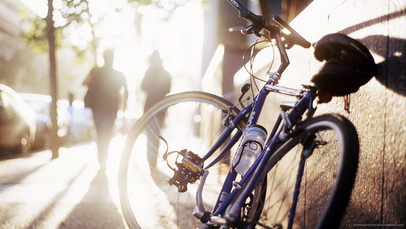
Bicycles
• A BICYCLE rider shall ride in the bicycle lane. If riding on roadway, road shoulder or bicycle lane, the rider must have:
1. A bell signal which is audible from a distance of 30 meters.
2. Good brakes which can immediately come to a full stop.
3. At least one front white light which is visibly seen from a distance of 15 meters at a level lower than the eyesight of drivers from opposite direction.
4. At least one red tail light which illuminates backward, or red material which reflects light. (Fine not exceeding 200 baht).
• A bicycle rider shall keep as close to the edge of the left side of roadway or bicycle lane as possible. When there is a bus lane on the left of the roadway, the bicycle rider shall ride close to the bus lane. (Fine not exceeding 200 baht).
• No cyclist shall ride:
1. Carelessly or recklessly in a way which may cause danger to persons or property.
2. Without control of handle bar.
3. Parallel with more than two bicycles except on a bicycle lane.
4. Without sitting properly on a normal saddle.
5. With a passenger, except for a three-wheeler or as deemed appropriate by a traffic officer.
6. Load or carry anything which may obstruct handling of bicycle or cause danger to persons or property.
7. Tow or be towed by another moving vehicle.
(Fine not exceeding 500 baht).
• A BICYCLE rider shall ride in the bicycle lane. If riding on roadway, road shoulder or bicycle lane, the rider must have:
1. A bell signal which is audible from a distance of 30 meters.
2. Good brakes which can immediately come to a full stop.
3. At least one front white light which is visibly seen from a distance of 15 meters at a level lower than the eyesight of drivers from opposite direction.
4. At least one red tail light which illuminates backward, or red material which reflects light. (Fine not exceeding 200 baht).
• A bicycle rider shall keep as close to the edge of the left side of roadway or bicycle lane as possible. When there is a bus lane on the left of the roadway, the bicycle rider shall ride close to the bus lane. (Fine not exceeding 200 baht).
• No cyclist shall ride:
1. Carelessly or recklessly in a way which may cause danger to persons or property.
2. Without control of handle bar.
3. Parallel with more than two bicycles except on a bicycle lane.
4. Without sitting properly on a normal saddle.
5. With a passenger, except for a three-wheeler or as deemed appropriate by a traffic officer.
6. Load or carry anything which may obstruct handling of bicycle or cause danger to persons or property.
7. Tow or be towed by another moving vehicle.
(Fine not exceeding 500 baht).
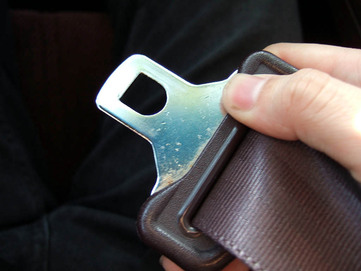
Passenger vehicles
• NO owner or driver of a passenger vehicle shall carry a corpse or person with leprosy or other infectious diseases except:
1. In the case that passenger vehicle is used solely for passengers with infectious disease, in which case it must be reported in accordance with relevant laws.
2. In the case the passenger vehicle is not for other passenger and it will be able to carry corpse with relatives or concerned people with the corpse.
(Fine not exceeding 1,000 baht).
• Owner, driver or ticket collector of passenger vehicle shall not solicit for passengers noisily or in manner that is a nuisance to passengers, or round up, pull, hold back or force passengers or their belongings to board any passenger vehicle.
(Fine not exceeding 1,000 baht).
• Driver of passenger vehicle must stop and drop passenger at bus stop sign or other place agreed upon. (Fine not exceeding 500 baht).
• Driver or ticket collector of passenger vehicle shall not carry a greater number of passengers than prescribed by regulations. In counting the number of passengers, it shall be regarded that two children not older than ten years of age are equal to one adult passenger. (Fine not exceeding 1,000 baht).
• Driver or ticket collector of passenger vehicle shall not:
1. Smoke or talk while driving or collecting tickets.
2. Use impolite words, speak sarcastically, insult, abuse or act in an offensive manner to passengers or other persons. (Fine not exceeding 1,000 baht).
• Driver of passenger vehicle must turn off engine and let all passengers out of vehicle while fueling inflammable fuel with temperature of 21C or lower. (Fine not exceeding 1,000 baht).
• NO owner or driver of a passenger vehicle shall carry a corpse or person with leprosy or other infectious diseases except:
1. In the case that passenger vehicle is used solely for passengers with infectious disease, in which case it must be reported in accordance with relevant laws.
2. In the case the passenger vehicle is not for other passenger and it will be able to carry corpse with relatives or concerned people with the corpse.
(Fine not exceeding 1,000 baht).
• Owner, driver or ticket collector of passenger vehicle shall not solicit for passengers noisily or in manner that is a nuisance to passengers, or round up, pull, hold back or force passengers or their belongings to board any passenger vehicle.
(Fine not exceeding 1,000 baht).
• Driver of passenger vehicle must stop and drop passenger at bus stop sign or other place agreed upon. (Fine not exceeding 500 baht).
• Driver or ticket collector of passenger vehicle shall not carry a greater number of passengers than prescribed by regulations. In counting the number of passengers, it shall be regarded that two children not older than ten years of age are equal to one adult passenger. (Fine not exceeding 1,000 baht).
• Driver or ticket collector of passenger vehicle shall not:
1. Smoke or talk while driving or collecting tickets.
2. Use impolite words, speak sarcastically, insult, abuse or act in an offensive manner to passengers or other persons. (Fine not exceeding 1,000 baht).
• Driver of passenger vehicle must turn off engine and let all passengers out of vehicle while fueling inflammable fuel with temperature of 21C or lower. (Fine not exceeding 1,000 baht).
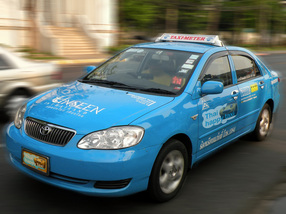
Taxis
• THE driver of a taxi shall not refuse to accept employment to convey passengers except when such conveyance is likely to cause danger to himself or passengers. In the event of the driver of a taxi does not wish to be employed to convey passengers, a sign shall be displayed in a manner in accordance with the law. (Fine not exceeding 1,000 baht).
• Owner or driver shall not solicit for passengers noisily or in manner that is a nuisance to passengers, or round up, pull, hold back or force passengers or their belongings to board any passenger vehicle. (Fine not exceeding 1,000 baht).
• The driver of a taxi shall not charge a fare in excess of the amount registered on the taxi meter. (Fine not exceeding 500 baht).
• The taxi driver shall not:
1. Smoke, play a radio or act in any manner that is a nuisance to passengers.
2. Extend a hand, arm or any part of the body out of the vehicle except in displaying turning signals.
3. Control the steering wheel with only one hand, except when necessary.
4. Use sound signals when entering the area of a hospital, office or educational institute; use horn sound signals to press other vehicles.
5. Overtake or dash in front of other vehicles haphazardly and dangerously.
6. Drive into another person’s house area.
7. Pick up a passenger in an area prescribed by the traffic officer with a traffic sign prohibiting picking up of passengers.
8. Use impolite words, speak sarcastically at, insult, abuse or act in such manner to the passengers or other persons.
(Fine not exceeding 1,000 baht).
• The driver of a taxi shall convey passengers via the shortest route or a reasonable detour and shall deliver them at the place agreed upon. Driver of a taxi shall not abandon his passengers along the way in any circumstance. (Imprisonment not exceeding one month, or fine not exceeding 2,000, or both).
• The driver of a taxi shall dress in a uniform with an embroidered mark, according to regulations. (Fine not exceeding 500 baht).
• THE driver of a taxi shall not refuse to accept employment to convey passengers except when such conveyance is likely to cause danger to himself or passengers. In the event of the driver of a taxi does not wish to be employed to convey passengers, a sign shall be displayed in a manner in accordance with the law. (Fine not exceeding 1,000 baht).
• Owner or driver shall not solicit for passengers noisily or in manner that is a nuisance to passengers, or round up, pull, hold back or force passengers or their belongings to board any passenger vehicle. (Fine not exceeding 1,000 baht).
• The driver of a taxi shall not charge a fare in excess of the amount registered on the taxi meter. (Fine not exceeding 500 baht).
• The taxi driver shall not:
1. Smoke, play a radio or act in any manner that is a nuisance to passengers.
2. Extend a hand, arm or any part of the body out of the vehicle except in displaying turning signals.
3. Control the steering wheel with only one hand, except when necessary.
4. Use sound signals when entering the area of a hospital, office or educational institute; use horn sound signals to press other vehicles.
5. Overtake or dash in front of other vehicles haphazardly and dangerously.
6. Drive into another person’s house area.
7. Pick up a passenger in an area prescribed by the traffic officer with a traffic sign prohibiting picking up of passengers.
8. Use impolite words, speak sarcastically at, insult, abuse or act in such manner to the passengers or other persons.
(Fine not exceeding 1,000 baht).
• The driver of a taxi shall convey passengers via the shortest route or a reasonable detour and shall deliver them at the place agreed upon. Driver of a taxi shall not abandon his passengers along the way in any circumstance. (Imprisonment not exceeding one month, or fine not exceeding 2,000, or both).
• The driver of a taxi shall dress in a uniform with an embroidered mark, according to regulations. (Fine not exceeding 500 baht).
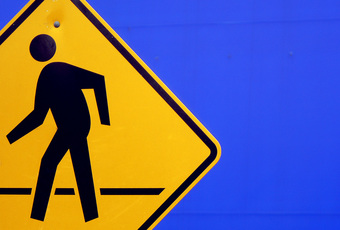
Pedestrians
• A PEDESTRIAN shall walk on the footpath or road shoulder. If there is neither footpath nor road shoulder, he shall walk along the edge of the way on his right. (Fine not exceeding 200 baht).
• Pedestrian shall not cross a roadway except in the pedestrian crossing, unless there is no crossing for a distance of more than 100 meters from where pedestrian wishes to cross. (Fine not exceeding 200 baht).
• A PEDESTRIAN shall walk on the footpath or road shoulder. If there is neither footpath nor road shoulder, he shall walk along the edge of the way on his right. (Fine not exceeding 200 baht).
• Pedestrian shall not cross a roadway except in the pedestrian crossing, unless there is no crossing for a distance of more than 100 meters from where pedestrian wishes to cross. (Fine not exceeding 200 baht).
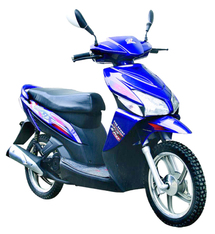
Motorcycles
• THE rider of a motorcycle shall sit on the saddle provided for the motorcycle rider. The passenger shall ride in the rear seat provided for the passenger, or in the side-car. (Fine not exceeding 500 baht).
• All motorcycle riders and passengers shall wear motorcycle helmets. This provision is not enforced for monks, novices, ascetics, persons of other religions which require wearing of a turban, or any persons under Ministerial Regulation.
(Fine not exceeding 500 baht).
• THE rider of a motorcycle shall sit on the saddle provided for the motorcycle rider. The passenger shall ride in the rear seat provided for the passenger, or in the side-car. (Fine not exceeding 500 baht).
• All motorcycle riders and passengers shall wear motorcycle helmets. This provision is not enforced for monks, novices, ascetics, persons of other religions which require wearing of a turban, or any persons under Ministerial Regulation.
(Fine not exceeding 500 baht).
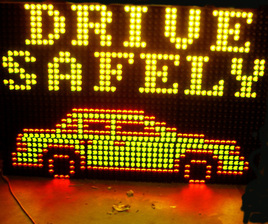
Miscellaneous
• NO person shall buy or sell goods, distribute materials or solicit contributions in a roadway or in the center space of a divided roadway without sufficient cause or in a way that obstructs traffic. (Fine not exceeding 500 baht).
• The number of passengers sitting in the front seat of a vehicle shall not exceed two. The driver must wear a seat belt and all passengers in the front seat should wear seat belts. (Fine not exceeding 500 baht).
• No person shall place, pour or throw pieces of broken glass, nails, wire, grease, empty cans or other materials or commit any action in a way that may cause danger or damage to vehicles or persons or obstruct the traffic. (Fine not exceeding 1,000 baht).
• A vehicle to be used in a procession or for advertising or entertainment along roadways shall obtain permission from the traffic police. (Fine not exceeding 500 baht).
• There shall be no vehicle race on the roadway except with written permission from the traffic police. There shall be no supporting of vehicle racing on the roadway except with written permission from the traffic police. (Imprisonment not exceeding 3 months or fine from 2,000 to 10,000 baht, or both).
Loss of license
• IN the event a driver commits an offence under this Act, the commander of the Bangkok Metropolitan Police, Provincial Police, Traffic Police Highways Police or person authorized by said officers shall have the power to seize and hold the driving license of the driver for a period not exceeding sixty days at a time. A driver whose license is seized may within 15 days of the seizure appeal to the RTP Director General, who shall consider the petition and give a decision within one month from the receipt of the appeal. The decision of the Director General shall be final.
Some words for the wise
AFTER driving in Bangkok and in the provinces for over three decades and being stopped by police countless times, I feel compelled to pass on some valuable advice: If you are stopped by the police, keep cool and don’t argue, even if you feel certain you haven’t broken any traffic laws. And try to smile. With the right attitude, chances are good they will let you off with a warning, unless you are stopped for a serious offence like going through a red light.
Also, don’t try to offer money to the police to let you off - even if you think this is an accepted procedure, because you could be charged with a criminal offense as outlined in Section 144 of the Penal Code of Thailand, punishable by imprisonment up to five years, a fine up to 10,000 baht, or both. By the way, police soliciting a bribe are subject to the same punishments, under Section 143. In such a case, insist on a ticket. As the fines are pretty low, the only inconvenience is a trip to the police station to pay the fine and collect your driver’s license.
A FINAL word: get a Thai driver’s license right away if you plan on driving and always buy first class insurance. These two essentials are well worth the time and expense and will be invaluable if you are involved in a traffic accident.
• NO person shall buy or sell goods, distribute materials or solicit contributions in a roadway or in the center space of a divided roadway without sufficient cause or in a way that obstructs traffic. (Fine not exceeding 500 baht).
• The number of passengers sitting in the front seat of a vehicle shall not exceed two. The driver must wear a seat belt and all passengers in the front seat should wear seat belts. (Fine not exceeding 500 baht).
• No person shall place, pour or throw pieces of broken glass, nails, wire, grease, empty cans or other materials or commit any action in a way that may cause danger or damage to vehicles or persons or obstruct the traffic. (Fine not exceeding 1,000 baht).
• A vehicle to be used in a procession or for advertising or entertainment along roadways shall obtain permission from the traffic police. (Fine not exceeding 500 baht).
• There shall be no vehicle race on the roadway except with written permission from the traffic police. There shall be no supporting of vehicle racing on the roadway except with written permission from the traffic police. (Imprisonment not exceeding 3 months or fine from 2,000 to 10,000 baht, or both).
Loss of license
• IN the event a driver commits an offence under this Act, the commander of the Bangkok Metropolitan Police, Provincial Police, Traffic Police Highways Police or person authorized by said officers shall have the power to seize and hold the driving license of the driver for a period not exceeding sixty days at a time. A driver whose license is seized may within 15 days of the seizure appeal to the RTP Director General, who shall consider the petition and give a decision within one month from the receipt of the appeal. The decision of the Director General shall be final.
Some words for the wise
AFTER driving in Bangkok and in the provinces for over three decades and being stopped by police countless times, I feel compelled to pass on some valuable advice: If you are stopped by the police, keep cool and don’t argue, even if you feel certain you haven’t broken any traffic laws. And try to smile. With the right attitude, chances are good they will let you off with a warning, unless you are stopped for a serious offence like going through a red light.
Also, don’t try to offer money to the police to let you off - even if you think this is an accepted procedure, because you could be charged with a criminal offense as outlined in Section 144 of the Penal Code of Thailand, punishable by imprisonment up to five years, a fine up to 10,000 baht, or both. By the way, police soliciting a bribe are subject to the same punishments, under Section 143. In such a case, insist on a ticket. As the fines are pretty low, the only inconvenience is a trip to the police station to pay the fine and collect your driver’s license.
A FINAL word: get a Thai driver’s license right away if you plan on driving and always buy first class insurance. These two essentials are well worth the time and expense and will be invaluable if you are involved in a traffic accident.

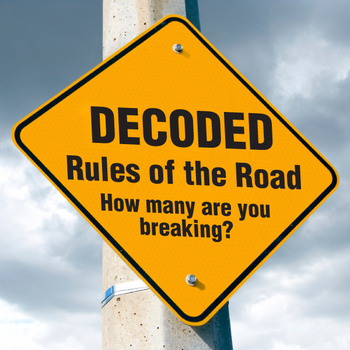
 RSS Feed
RSS Feed
















